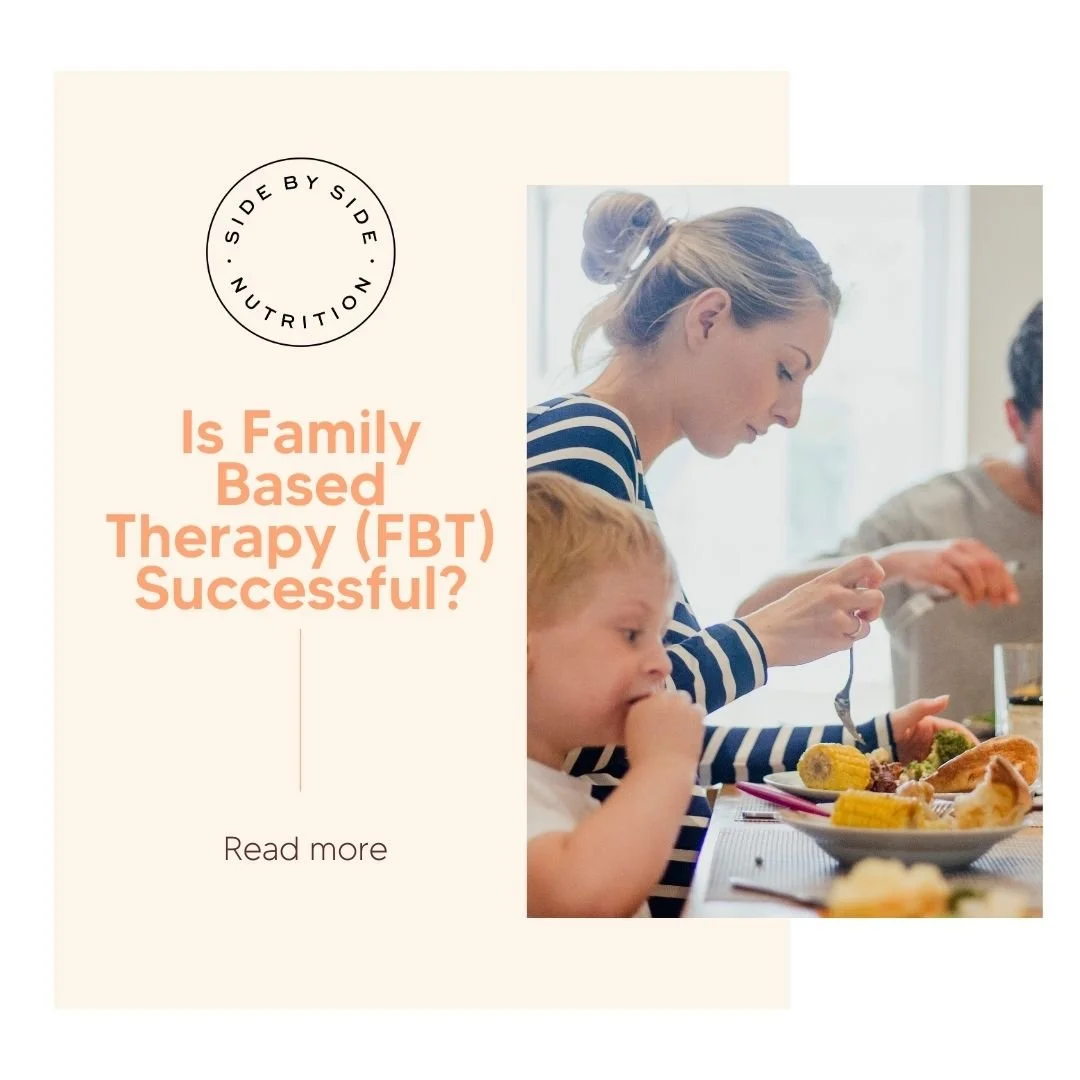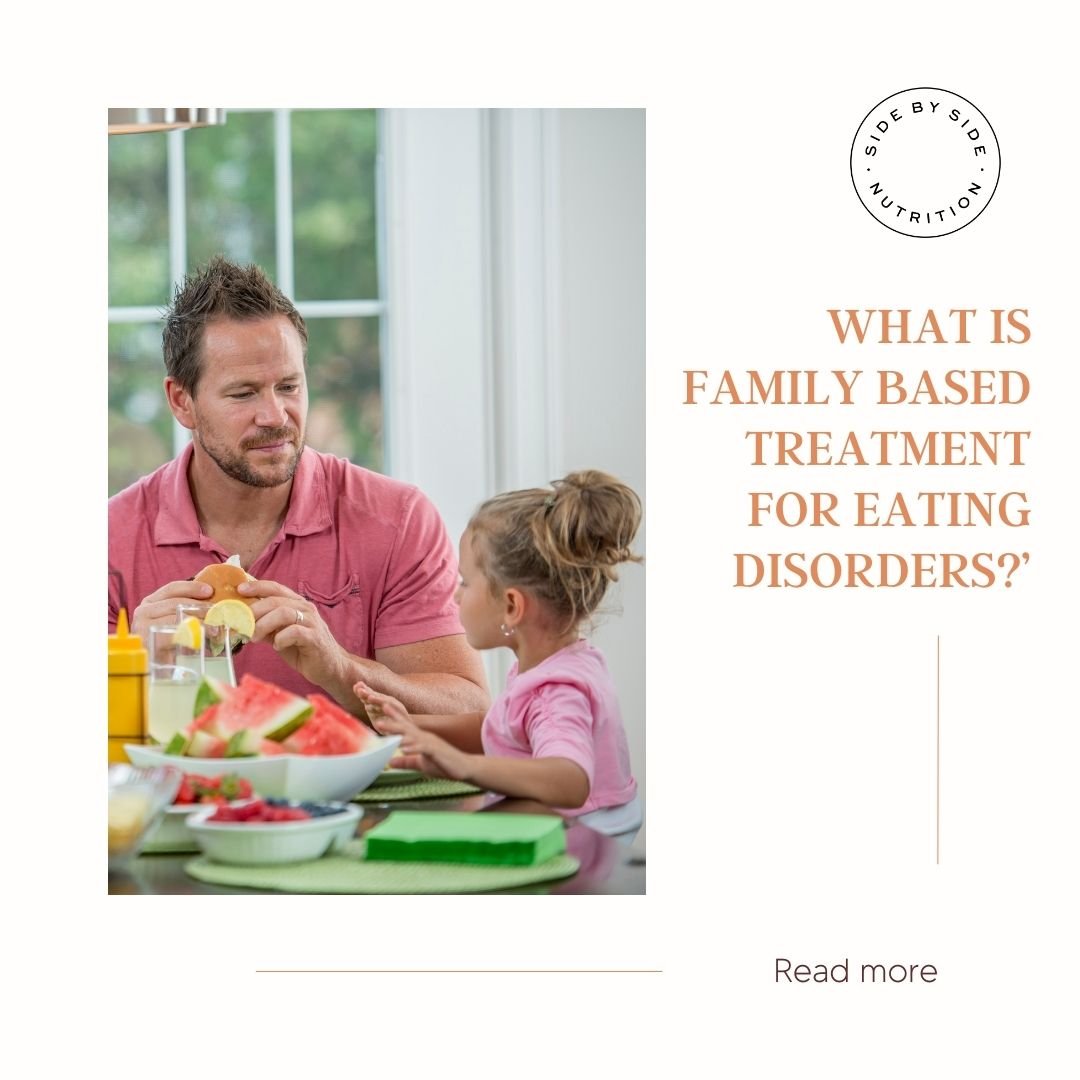This is a question we commonly get and the answer is quite lengthy and depends on each client’s individual needs and goals. Dietitians often create personalized meal plans for their clients and the process involves a collaborative approach where the dietitian works closely with the client to understand their individual needs, preferences, health goals, and any specific dietary restrictions.
Read MoreIn the realm of managing eating disorders, seeking the guidance of a registered dietitian can be a pivotal step toward recovery and reclaiming a healthy relationship with food. However, the question of “how much support” to receive and why it isn’t always straightforward and depends on the needs of each client. Let's dive into this topic and shed light on the significance of the frequency of sessions for outpatient eating disorder work.
Read MoreEating disorders are complex mental health conditions that affect individuals of all ages, genders, and backgrounds. These struggles aren't just about food—they affect every aspect of our lives, from our physical health to our relationships with ourselves and others. Family Based Treatment has proven successful for families and loved ones struggling with an eating disorder.
Read MoreEating disorders are complex conditions that not only affect individuals but also deeply impact their families. As dietitians passionate about eating disorder recovery, we have witnessed firsthand the toll these disorders take on both the person suffering and their loved ones. In the realm of treatment, one approach stands out for its effectiveness and unique focus on the involvement of families and loved ones: Family-Based Treatment (FBT).
Read MoreAtypical anorexia and anorexia nervosa share many similarities, with the key difference lying in their weight criteria for diagnosis. Both conditions are characterized by extreme restriction of food intake, fear of gaining weight, and distress over body image. However, while individuals with anorexia nervosa typically have significantly low body weight, those with atypical anorexia may not meet the extremely low weight criteria associated with anorexia nervosa.
Read MoreConcerned about getting in “just enough” fuel for your tank each day? Turns out, that may not be the best way to approach nutrition for your body. Explore how thinking of your body like an engine may be limiting your experience with food & healing
Read MoreAre you pursuing “health” in your life but coming up short? Are you feeling overwhelmed by all of the recommendations floating around in mainstream media and simultaneously ashamed that you can’t do it all? Keep reading to hear some thoughts on how to re-frame this concept and step into a more compassionate and nuanced space as it relates to your pursuit of health.
Read MoreNeuroplasticity is the property of the brain that enables it to change its own structure and functioning in response to activity and mental experience. Brain cells are able to constantly communicate electrically with one another and form and re-form new connections, moment by moment...a unique kind of healing. The good news for recovery is that when we start to think, feel, and do things differently, we carve out a new road.
Read MoreAs part of breaking the cycle of acting on ED behaviors in response to negative body image, you can learn skills to help tolerate urges for eating disorder behaviors.
Read MoreYour relationship with your body and your body’s relationship with yourself is just that- a relationship. In relationships, what we need is an understanding, an ability to listen to one each, an ability to understand and mend, to ask each other what you both need.
Read MoreBody image research is DEFINITELY lacking but we do have an understanding based on the research that tells us about why some people have better body image than others and what qualities, skills, components they have that allow them to have a healthier, more positive relationship with their body.
Read MoreOftentimes people do not recognize that their binge episodes are related to under-eating throughout the day. When that happens, they can feel shame associated with misunderstanding their body and their current seemingly “uncontrolled” behavior around food. Learn more about binge eating!
Read More












